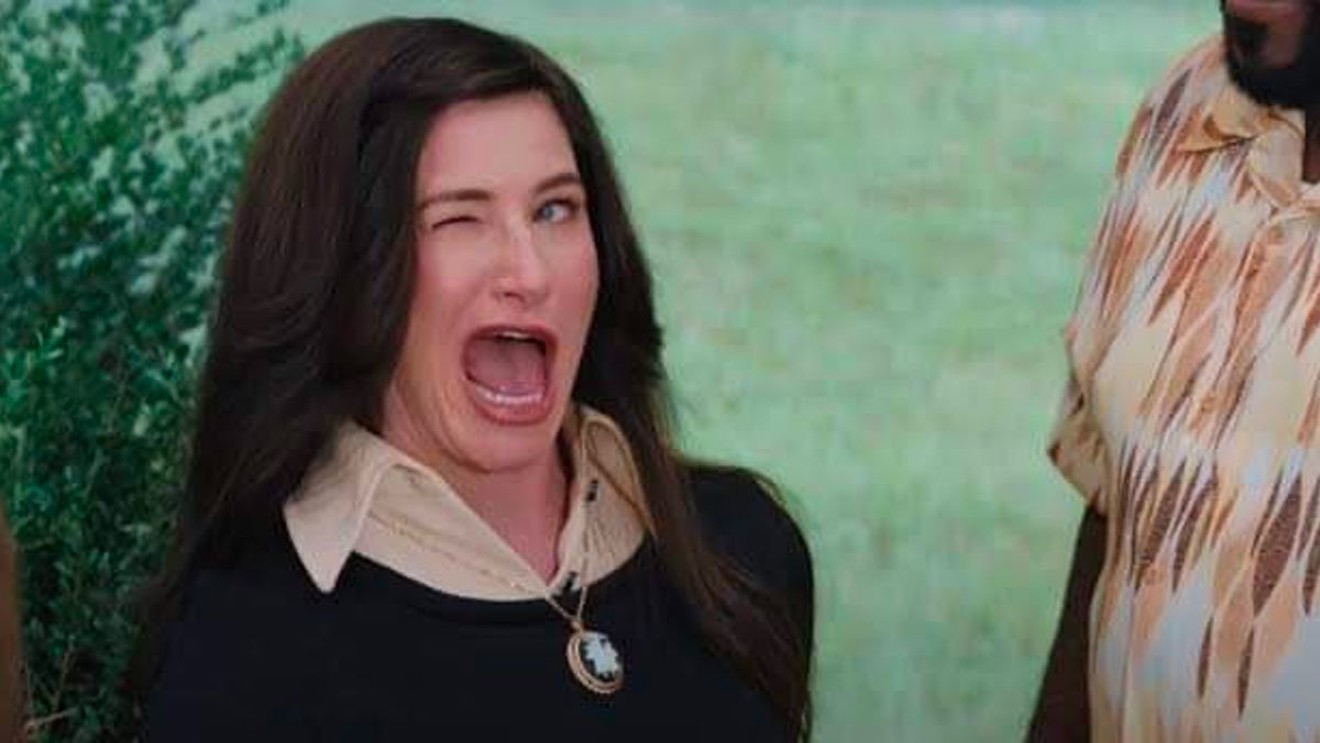"I think this bill that I'll sign into law shows the State of Florida takes public safety very seriously," DeSantis said.
The law, which went into effect immediately, enhances punishments for crimes committed at protests, prevents people arrested at protests from immediately bailing out of jail, and penalizes anyone who stands in a public street or highway during a rally, among other provisions.
The governor first pitched the idea for the bill last year, citing the protests for the Black Lives Matter movement that arose after Minneapolis resident George Floyd was killed at the hands of police last May. While most of the protests were peaceful, DeSantis and other Republicans focused their attention on a handful of rallies that became disorderly or violent.
At yesterday's press conference, DeSantis said the new Florida law would be in effect by the time the jury reaches a verdict in the criminal case against Derek Chauvin, the officer accused of killing Floyd. DeSantis noted that no matter the result, some people will be disappointed, which could result in nationwide uprisings.
"You have politicians like [Democratic California Rep.] Maxine Waters demanding people be confrontational in the streets and that is totally, totally unacceptable," he said.
Despite DeSantis' finger-pointing at Democrats, Republican legislators in Florida insist their bill is apolitical.
At the press conference yesterday, Florida Senate President Wilton Simpson lamented that "somehow this became a political hot issue."
"I don't know how it's political to say we're going to protect law enforcement, right?" he said. "We're going to protect people's property and there's gonna be rules of engagement if you decide to riot, not protest."
GOP lawmakers made a point to repeatedly state for the record that Floridians are still more than welcome to peacefully protest.Senate President @WiltonSimpson during his remarks questions why the bill bc contentious. "Somehow this became a political hot issue." (Um, it bc political bc Gov. DeSantis kept pushing the bill during campaign appearances with President Trump.)
— Gary Fineout (@fineout) April 19, 2021
"There's nothing in this 60-page bill that makes it a crime to be a peaceful protester," said Florida House Speaker Chris Sprowls.
Polk County Sheriff Grady Judd, who styles himself as a sort of Floridian Joe Arpaio, at one point held up two photos to demonstrate the difference between a riot and a peaceful protest.
"Peaceful protest, we encourage," he said, holding up a photo of protesters marching down Pennsylvania Avenue in front of the U.S. Capitol last June.
Then he pulled out a photo of a protester flexing their biceps in front of a burning building: "And a riot."
"We can tell the difference," Judd said, "and I'll guarantee you that you'll be able to tell the difference if you come here and riot."

Polk County Sheriff Grady Judd shows the difference between a "riot" (left) and a "peaceful protest" (right).
And, as critics have pointed out, the language in the new law is somewhat subjective when it comes to defining what constitutes a "riot."
The new law holds that a person "commits a riot if he or she willfully participates in a violent public disturbance involving an assembly of three or more persons, acting with a common intent to assist each other in violent and disorderly conduct, resulting in: injury to another person; damage to property; or imminent danger of injury to another person or damage to property."
It's unclear from the text whether everyone at the scene could be arrested or only those who take part in the violent disturbance.
Melba Pearson, a civil-rights attorney who works at Florida International University's Center for the Administration of Justice, believes the law might lead to disproportionate outcomes for people, depending on what they're protesting.
Pearson, a progressive Democrat who made an unsuccessful bid to unseat Katherine Fernandez Rundle as Miami-Dade State Attorney last year, wonders if enforcement will be the same for people protesting abortion rights or election results as it will be for people demonstrating against systemic racism and police brutality.
She says it's also a problem to not have objective standards for how the law can be applied. Prosecutors can exercise discretion in determining whether to charge someone under the enhanced penalties, which means punishments can differ across Florida counties and lead to inconsistencies in charging and sentencing practices.
"These are things that cause me great concern," Pearson says. "When you have differences in the way that a law is applied — that by its very nature is injustice."
Florida House Minority Leader Bobby DuBose, a Democrat who represents District 94 in Broward County, also foresees the new law being disproportionately enforced.
"We know from a lifetime of experience who this will harm: communities of color," he said at a press conference held by Democrats after DeSantis signed the law. "Because of problems in our law enforcement and criminal justice system, this will be used to silence and harm Black and brown Floridians."
DuBose also challenged Republicans' assertion that the measure was not politically or racially motivated.
"We were told over and over this bill isn't racist. And I think a lot of those saying it might have believed that," he said. "But when we ask our colleagues and the governor to listen, when we said this would hurt us, they did not. Folks, this bill is unnecessary — it is a dangerous law and bad for Florida."
Democratic state Sen. Shevrin Jones, who represents District 35 on the Broward/Miami-Dade county line, echoed those concerns.
"This was never about protecting 'peaceful protesters,' it has always been about silencing a group of protesters, black & brown voices," Jones tweeted.
In the aftermath of the bill-signing, protest groups in Miami are already re-evaluating how to assemble but say they won't be discouraged from exercising their rights under the First Amendment of the U.S. Constitution.The signing of #HB1 being signed today is a deliberate scare tactic, considering that closing arguments in the #DerekChauvinTrial started today. This was never about protecting “peaceful protesters”, it has always been about silencing a group of protesters, black & brown voices.
— Shevrin “Shev” Jones (@ShevrinJones) April 19, 2021
Dulcee Barnes, a frequent face at Miami's Black Lives Matter protests and a founder of the mutual-aid group Protect the Land, says a provision of the bill that vaguely defines "inciting a riot" is worrisome. But people's desire for change and community, she argues, is strong.
"We just have to be on the same page and figure out how to maneuver around this," Barnes says. "This should have no effect on our lives, because we're not doing anything wrong at all. I'd like to be more militant with how we organize marches. We should have more unified, organized events. And we'll do mutual aid in the community. That's not stopping."













